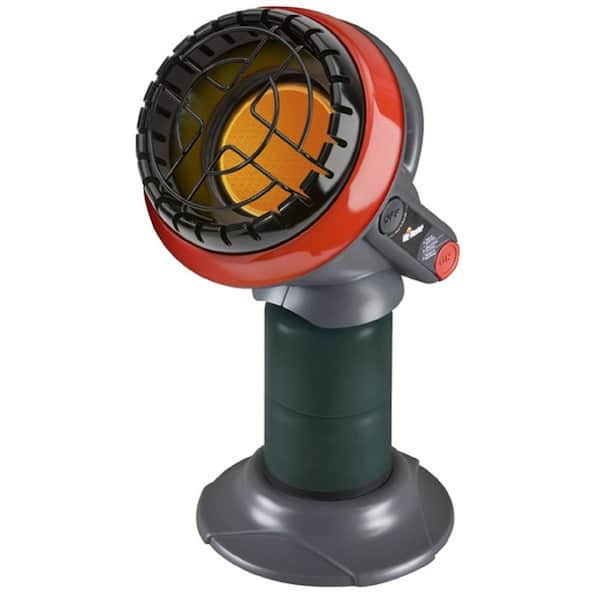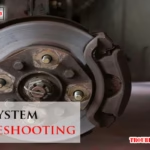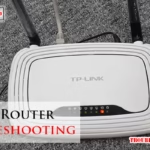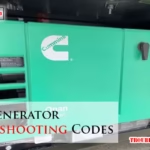Struggling with your Mr. Heater propane heater? You’re not alone.
When the temperatures drop and your heater doesn’t work as it should, frustration can quickly set in. But don’t worry—most issues can be resolved with a little guidance. In this post, we’ll walk you through common troubleshooting steps to get your heater back to keeping you warm and comfortable.
Whether it’s not igniting, shutting off unexpectedly, or just acting up, we’ve got simple solutions to help you fix it fast. Stick around—you’ll be glad you did when your heater is running smoothly again. Let’s dive in!
Common Issues With Mr Heater Propane Heaters
Mr. Heater propane heaters are reliable companions during chilly days, but like any device, they can occasionally run into issues. Whether you’re heating your garage, workshop, or home, troubleshooting problems can feel frustrating. The good news? Most common issues are easy to identify and fix with a little guidance.
1. The Heater Won’t Turn On
One of the most frequent complaints is the heater not starting. Start by checking the propane tank—ensure it’s not empty or the valve isn’t closed. A loose or improperly connected hose can also block propane flow, so double-check all connections.
If the tank and connections are fine, inspect the ignition system. Is the igniter clicking when you press it? If not, the igniter might need cleaning or replacing. Use a clean cloth to wipe away dirt or carbon buildup, as these can prevent proper sparking.
2. Pilot Light Won’t Stay Lit
Does your pilot light go out shortly after lighting it? A dirty thermocouple might be the culprit. The thermocouple is a safety component that senses the pilot flame, so if it’s blocked by soot, the heater will shut down.
Clean it gently with fine sandpaper or a soft brush. Avoid using water or chemicals as these can damage the part. If cleaning doesn’t work, the thermocouple may need replacing, which is usually an affordable fix.
3. Weak Or No Heat Output
Sometimes your heater turns on, but the heat it produces is barely noticeable. This could indicate a low propane supply. Always check your propane level first and switch to a full tank if necessary.
Another possibility is a clogged burner. Over time, dust and debris can collect in the burner ports, blocking the flame. Turn off the heater, let it cool, and carefully clean the burner with a soft brush or compressed air. Avoid poking anything into the ports as it can damage them.
4. Strong Propane Smell
If you notice a strong propane smell, it’s essential to act immediately. Shut off the propane supply and ventilate the area. A smell could indicate a leak, which is a serious safety concern.
Inspect the hose and connections for cracks or wear. Apply soapy water to the connections and look for bubbles to identify leaks. Replace any damaged parts before restarting the heater.
5. Heater Shuts Off Unexpectedly
Does your heater turn off randomly? This could be due to low oxygen levels in the room. Many Mr. Heater models have a built-in oxygen depletion sensor (ODS) that automatically shuts off the heater for safety reasons.
Ensure the room is well-ventilated. Open a door or window slightly to allow fresh air to flow in. If ventilation isn’t the issue, check for overheating or blockages in the heater’s air intake.
By addressing these common issues, you can enjoy a warm and comfortable space with minimal interruptions. Are you dealing with any of these problems? Share your experience in the comments below!
Heater Not Igniting
A propane heater is a lifesaver during cold months, but what happens when it refuses to ignite? It’s frustrating, especially when you need warmth immediately. Luckily, troubleshooting a non-igniting Mr. Heater propane heater isn’t as overwhelming as it might seem.
Checking The Fuel Supply
The first thing to check is the propane tank itself. Is there enough fuel left? A nearly empty tank can cause inconsistent ignition. If you’re unsure, swap out the tank for a full one.
Next, inspect the hose and connections. Are they tightly secured? A loose connection can prevent propane from flowing properly. Tighten them if needed, but avoid overtightening to prevent damage.
Also, check for visible signs of damage on the hose—cracks or leaks can interrupt the fuel supply. If you suspect a leak, apply soapy water to the hose and look for bubbles forming. Replace the hose if necessary.
Inspecting The Ignition System
The ignition system is the heart of your heater’s start-up process. Start by ensuring the igniter button isn’t stuck or worn out. Press it several times and listen for a clicking sound. No click likely means the igniter isn’t functioning.
Examine the wiring around the igniter. Are any wires loose or frayed? Reattach loose wires carefully or replace damaged ones. Even a small issue here can disrupt ignition.
If your igniter uses batteries, check them. Weak or dead batteries won’t provide enough power for ignition. Replace the batteries and test the heater again.
Cleaning The Burner Assembly
A dirty burner assembly can block ignition entirely. Dust and debris can accumulate over time, reducing efficiency. Use a soft brush or compressed air to remove any buildup around the burner.
Check the flame ports on the burner. Are they clogged? Carefully unclog them with a pin or needle, but avoid damaging the ports. Clean flame ports allow propane to flow smoothly.
After cleaning, reassemble the burner and test the heater. A clean burner often resolves ignition issues and improves performance.
If your heater still isn’t igniting, ask yourself: Did I miss any of these steps? Many ignition problems stem from simple fixes. Taking a methodical approach ensures you won’t overlook anything important.
Heater Shutting Off Unexpectedly
Many Mr. Heater propane heater users experience an issue where the heater shuts off unexpectedly. This can disrupt your comfort and leave you wondering about the cause. Understanding the problem and addressing it can restore your heater’s functionality. Let’s explore some common reasons and their solutions.
Examining The Thermocouple
The thermocouple is a safety device that detects the pilot flame. If it’s dirty or misaligned, the heater may shut off. Inspect the thermocouple for dirt or debris. Clean it gently using fine sandpaper or a soft cloth. Ensure it’s positioned close to the pilot flame. A loose or damaged thermocouple might need replacement.
Inspecting The Oxygen Depletion Sensor
The oxygen depletion sensor (ODS) ensures safe air quality during operation. If the ODS detects low oxygen levels, it will shut off the heater. Dust or residue on the sensor can cause false readings. Clean the sensor carefully without using harsh chemicals. If the problem persists, consult a professional for inspection or repair.
Ensuring Proper Ventilation
Propane heaters require adequate ventilation to function safely. Poor airflow can trigger safety features and shut the heater off. Check for blocked vents or restricted airflow around the heater. Place the heater in a well-ventilated area with no obstructions. Always follow the manufacturer’s guidelines for safe operation.

Credit: www.mrheater.com
Low Heat Output
Experiencing low heat output from your Mr. Heater propane heater can be frustrating. It often means the heater isn’t working as efficiently as it should. This can make your space colder than expected. Several factors could cause this issue. Identifying and fixing them can restore your heater’s performance. Let’s explore some common troubleshooting steps to resolve low heat output.
Checking For Blocked Gas Lines
Blocked gas lines can reduce propane flow to the heater. Inspect the gas lines for any kinks, bends, or obstructions. Ensure the connections are secure and free from debris. Use compressed air to clear any blockages inside the lines. Replace damaged or excessively worn gas lines immediately. Regular checks can prevent future blockages and ensure steady heat output.
Adjusting The Regulator
The regulator controls the propane flow to your heater. An improperly adjusted regulator can limit heat production. Locate the regulator near the propane tank. Check for signs of wear or damage. Adjust the regulator knob to increase the propane supply slightly. Avoid over-adjusting, as it may cause safety issues. If adjusting doesn’t help, consider replacing the regulator.
Cleaning The Heater Components
Dirt and dust can accumulate in your heater over time. These particles can block vents and burners, reducing heat output. Turn off the heater and let it cool completely. Use a soft brush or vacuum to clean the burners and vents. Remove any visible debris or soot buildup. Ensure the pilot light area is also clean and unobstructed. Regular cleaning improves performance and extends the heater’s life.
Propane Smell During Operation
Noticing a propane smell while using your Mr. Heater propane heater can be concerning. It’s not only unpleasant but could also signal a safety issue. Addressing the root cause promptly ensures your heater runs efficiently and keeps your space safe.
Inspecting For Gas Leaks
Start by checking for gas leaks using a simple soap and water solution. Mix a few drops of dish soap in a spray bottle with water and spray it along the connections and hoses of your heater. Look for bubbles forming—this indicates escaping gas.
Pay close attention to the area around the propane tank and the heater’s regulator. Even small leaks can lead to a noticeable propane smell. If you find bubbles, turn off the propane immediately and avoid using the heater until the issue is fixed.
Securing Loose Connections
Loose connections are often the culprit behind a propane smell. Check the fittings where your propane tank connects to the heater. Use a wrench to tighten them if they feel loose, but don’t overtighten, as this can damage the parts.
Always ensure the connection is snug before you operate the heater. If you’re not sure about the tightness, disconnect the hose and reconnect it carefully. A secure connection prevents leaks and ensures smooth operation.
Replacing Damaged Hoses
Inspect your propane hoses for cracks, fraying, or visible damage. Even minor wear can lead to gas escaping and create a noticeable smell. If you spot any damage, replace the hose immediately.
Use only manufacturer-recommended hoses that fit your heater model. A mismatched or low-quality hose could worsen the problem instead of fixing it. Replacing a damaged hose is a simple task that can save you from bigger safety risks down the line.
Have you ever experienced a propane smell while using your heater? Taking these straightforward steps could be all you need to resolve it. Small fixes can make a big difference in your heater’s performance and your peace of mind.
Heater Making Unusual Noises
Is your Mr. Heater propane heater making unusual noises? Strange sounds can be frustrating and may signal an issue that needs attention. Common causes include loose parts, fan problems, or issues with gas flow. Understanding these causes can help you resolve the problem and enjoy quiet, efficient heating.
Identifying Loose Parts
Loose components can cause rattling or clanking noises in your heater. Inspect screws, panels, and other parts for looseness. Tighten them gently using a screwdriver. Avoid overtightening, as it may damage the threads. Also, check if any part is missing or worn out. Replace defective parts to prevent further noise.
Checking The Fan Or Blower
A noisy fan or blower could mean dirt, debris, or wear and tear. Turn off the heater and unplug it before inspection. Remove the cover and clean the fan blades with a soft brush. Check for bent or damaged blades. If the fan motor is noisy, it may need lubrication or replacement.
Addressing Gas Flow Issues
Whistling or hissing sounds often point to gas flow problems. Start by inspecting the propane tank and connections for leaks. Apply soapy water to the connections and watch for bubbles. Ensure the regulator is functioning properly and not clogged. If the noise persists, consult a technician to check the internal gas valve.
Maintenance Tips For Longevity
Proper maintenance ensures your Mr Heater propane heater works efficiently and lasts longer. Neglecting care can lead to reduced performance and frequent breakdowns. Follow these practical tips to extend its life and enjoy reliable heating.
Regular Cleaning Schedule
Dust and debris can clog the heater, affecting its performance. Clean the exterior and vents regularly to prevent buildup. Use a soft cloth to wipe the surfaces and a brush for hard-to-reach areas. Avoid using abrasive cleaners that might damage the finish.
For deeper cleaning, check the user manual for instructions. Ensure the heater is off and cool before cleaning. Remove dirt from the burner ports to maintain steady heat output. Regular cleaning keeps your heater efficient and safe.
Inspecting Components Periodically
Inspecting components helps identify issues before they worsen. Check the propane connections for leaks using a solution of soap and water. Bubbles indicate a leak that needs fixing immediately.
Examine the ignition system for wear or damage. Ensure the pilot light functions properly and burns consistently. Look for cracks or corrosion in the heater’s body, which might compromise safety. Regular inspections prevent costly repairs later.
Storing The Heater Safely
Proper storage protects your heater from damage during unused periods. Turn off the propane supply and disconnect the tank. Clean the heater thoroughly to remove dust and grime before storing.
Store the heater in a dry, cool place away from direct sunlight. Avoid areas with high humidity to prevent rust or corrosion. Cover it with a protective cloth or case to shield it from dust. Safe storage ensures the heater stays in good condition.

Credit: www.homedepot.com

Credit: www.youtube.com
Conclusion
Troubleshooting a Mr. Heater propane heater doesn’t have to feel overwhelming. Start with simple checks like fuel levels and connections. Clean the heater regularly to ensure smooth performance. Replace faulty parts promptly for safety and efficiency. Always follow the user manual for guidance.
If issues persist, seek professional help to avoid risks. Regular maintenance can prevent most problems and extend your heater’s life. Stay safe and enjoy the comfort your heater provides during cold days. A little care goes a long way in keeping it running smoothly.






